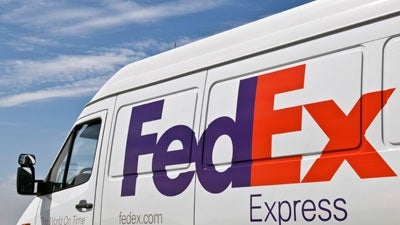
Spoiler Alert: The answer is yes, and that is a very important lesson for you, as well.
You’ve probably heard that when he was an undergraduate, Frederick W. Smith got less than a stellar grade on what was in essence the business plan for the company he would create: Federal Express. The professor thought Smith’s hub and spoke idea, which had every package first sent to Tennessee to be sorted and then shipped to destinations around the world, was, at best, painfully inefficient and, at worst, crazy. Why would you send a package from Chicago to Memphis to have it shipped back to Chicago?
Professors have this nasty habit of looking to the past—in this case to how packages were traditionally shipped—in order to predict the future. Unfortunately, so do many company executives.
What Business Could We Be In Tomorrow?
Because customer needs, wants and desires are constantly evolving, if you are the leader of a company bent on innovation, the most important question you must ask your team is, “What business could we be in tomorrow?”
If you work at FedEx, UPS or the U.S. Postal Service, a forward-thinking answer to this question could determine whether or not you have a future. For example, narrowly believing you are in the package delivery business will create blind spots, which will keep you from leveraging the massive competitive advantages you currently hold and, worse, could lead an innovative upstart to pick off the most profitable parts of your business.
Riddle me this, Batman: What business is Apple in? What about Google? The most innovative companies have this knack for redefining themselves based on aligning ever-changing customer needs, emerging technologies and their unique abilities—their superhero powers.
Related Article: How Do I Innovate?
Show of hands…how many of you would buy a new home from Apple or let your kids attend a college launched by Google? I suspect your hand is up because each of these companies has consistently responded brilliantly to market needs and refused to define themselves by a single product, service or category. They are constantly thinking about the businesses they could be in tomorrow. They have become so good at it that it is impossible to define them by vertical or even industry.
How Uber Puts FedEx Out Of Business
Imagine you’re about to leave your office for the day and your phone vibrates with a text from Uber: “Your next door neighbor Stella has ordered a dozen cupcakes from the Courageous Cupcakes shop next to your office. Would you mind dropping them off at her house? We’ll credit your account $7.50.”
You’re happy to drop off the cupcakes. You’d do it for Stella for free. She’s your neighbor, and you’re driving home anyway, but, hey, a $7.50 credit is a $7.50 credit. You click the “Accept” button.
In a few years, this simple transaction will be repeated millions of times a day. Imagine every time you go to the hardware store, department store, automotive store…you’ll have the option to be a more efficient version of the FedEx driver. Why call them when you can drop off the parts or pants on the way home? Imagine what would happen if a large ecommerce company used local distribution coupled with Uber rather than centralized distribution and FedEx. A professor might give that idea an “A.” Across the globe, this type of technology-enabled behavior will save millions of gallons of fuel, thousands of hours of time, and cut delivery times to a fraction of what they are today.
When you hear Amazon say that they will eventually deliver their packages by drones, make no mistake; We are the drones. And Uber, or a technology like it, is the queen bee.
Back to FedEx…do you think they believe they are in the shipping business? If I were a shareholder of FedEx, my hope would be that they would be thinking more like a beekeeper than a mailman.
In 2011, my colleague Maria Ferrante-Schepis wrote an article titled, “Will Facebook Founder Zuckerberg Reinvent The Insurance Industry Next?” Her thoughts wound up on the front page of the Huffington Post and were the precursor to our book about companies reaching an inflection point titled, Flirting With the Uninterested: Innovating in a “Sold, Not Bought” Category. For FedEx and companies like it, Uber should signal a major inflection point.
Maria argued that Zuckerberg created the blend of community, relationships and technology that could efficiently help manage risk across a large group of people—the very thing that insurance was designed to do. Since Millennials are not as engaged in insurance as their parents are (that is a huge understatement), Zuckerberg could also win the largest segment of new consumers.
The article angered many traditional insurance executives. After all, they argued, what right does Zuckerberg have to be involved with an industry so complicated, so regulated, so noble? But more progressive leaders—those open to exploring new business models—found the idea incredibly compelling.
Today the train has left the station. Fueled by new technology, consumer needs and behavior, there are emerging companies like CrowdRise and Indiegogo that are using crowdfunding models to provide benefits that were once exclusively reserved for insurance companies. The traditional players still have undeniable competitive advantages but must be open to new possibilities before it is too late.
Stephen Covey said, “Every human has four endowments—self awareness, conscience, independent will and creative imagination. These give us the ultimate human freedom…The power to choose, to respond, to change.”
Whether your business is in shipping or shopping, reinsurance or real estate, the combination of awareness, choice and imagination opens you to a future with uber impact.
This article was originally published by Free the Idea Monkey
Published: April 24, 2015
2861 Views
2861 Views












